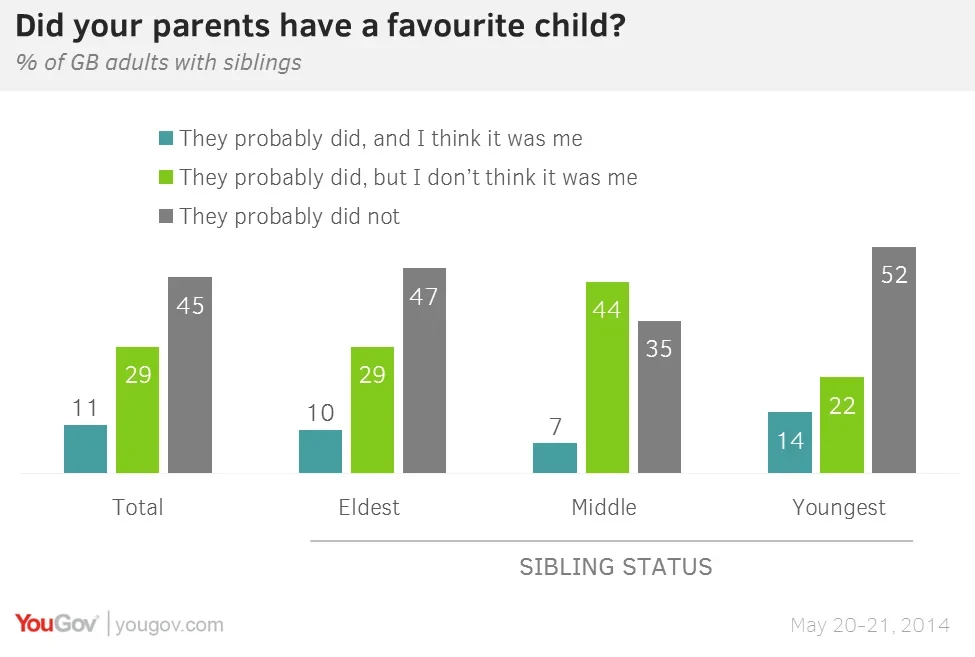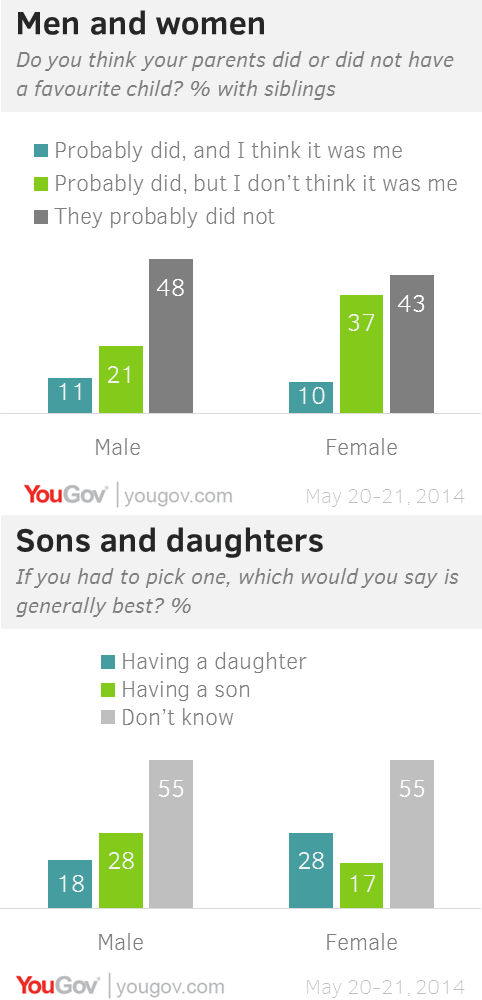29% of people think their parents preferred one of their siblings – and 28% say having a child of their own gender is better
Admitting to having a favourite child offends a deep sense of familial equality; it has even been called ‘the final taboo’. But humans do entertain prejudice. Some children don’t ‘click’ with their parents as well as others, and psychologists suggest that preferring first-borns is a way of protecting the greater investment required by the first attempt at parenthood.
A new YouGov survey finds that – against parents’ best efforts to conceal bias – 29% of siblings suspect their parents of having a favourite child that was not them.

The suspicion is more prominent in middle-borns, where 44% say their parents probably favoured another sibling compared to 29% of first-borns and 22% of youngest siblings.
Gender
Women are more likely to feel they were not the preferred sibling, with 37% of women suspecting their parents of having a favourite child that wasn't them compared to 21% of men.
However, there is no preference for male children, with 22% saying sons are generally better and 23% saying daughters.
28% of men do say having a son is generally better, though, compared to 18% who say this about having a daughter. Likewise, 28% of women say having a daughter is better, compared to 17% who say the same of sons.
Similarly, men are slightly more likely to say having a brother is better (26%) than a sister (20%), while women to a greater extent prefer sisters (32%) to brothers (20%).
And although most people say they like both their parents equally, 20% prefer their mother while 11% favour their father. True to the stereotype, men are less likely (7%) to prefer their father than women are (16%).
In 2009 two British professors published a study of 14,000 families. It found that each successive sibling received less care from their parents than the elder child. Older siblings were even fed better, making them up to 3cm taller, and given more attention, leading to higher IQs.






